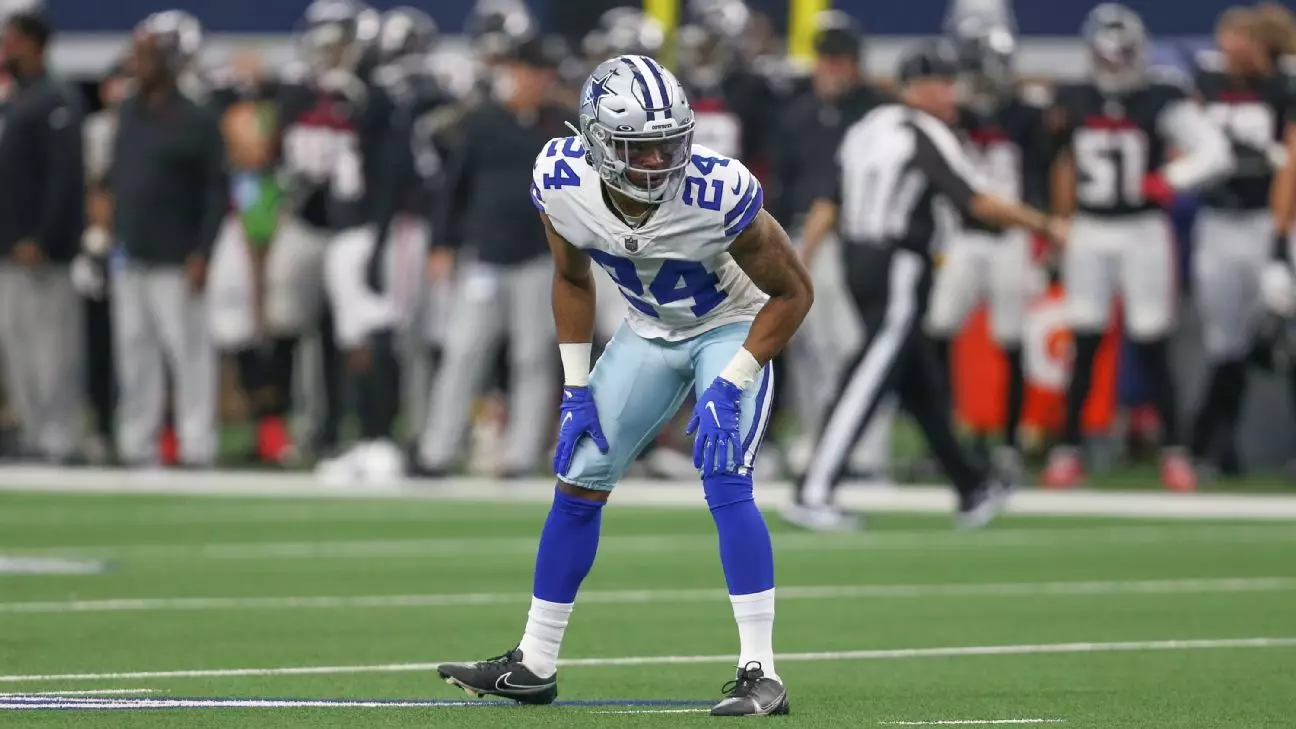The story of Kelvin Joseph, a former NFL defensive back turned United Football League (UFL) player, has taken a harrowing turn as he faces serious charges following a tragic car accident that ended the life of 27-year-old motorcyclist Cody Morris. The incident, which transpired early in the morning on a Dallas-area freeway, serves as a stark reminder of the consequences of reckless behavior and the ripple effects it can have on the lives of countless individuals.
Joseph, at just 25 years old, had been on the cusp of reviving his football career after making a name for himself with the Dallas Cowboys. However, his journey has been marred by poor decision-making, raising questions not only about his character, but also about the culture surrounding professional athletes and their accountability off the field.
The Incident: A Grim Reckoning
Reports indicate that Joseph called the police himself to report his involvement in the crash, suggesting a level of awareness that his actions were not only reckless but potentially fatal. This admission of guilt positions him squarely in the line of scrutiny as he faces charges for driving while intoxicated, a misdemeanor, and a more severe felony charge for a collision involving personal injury or death. While the details of the crash are still unfolding, Joseph’s behavior lends the air of tragic inevitability; when athletes indulge in reckless living, the consequences can be dire and irreversible.
The loss of a life due to Joseph’s alleged intoxication raises serious societal questions about the responsibilities that come with celebrity status. Are NFL players, celebrated and idolized by fans, equipped to manage their newfound fame and, in some cases, its accompanying vices? Joseph’s involvement in this incident cannot be viewed in isolation; it is emblematic of a larger pattern where athletes often find themselves embroiled in controversy, driven by a sense of invincibility.
Past Mistakes Haunt His Present
Compounding the tragedy is Joseph’s checkered past, which includes a previous incident during his time with the Dallas Cowboys where he was linked to a shooting, although he was cleared of being the shooter. This pattern raises critical questions: Is there an underlying issue that needs addressing within the support systems (or lack thereof) provided to athletes, especially young ones? The NFL has been criticized for its handling of both on-field and off-field controversies, often allowing such behaviors to persist unchecked.
Furthermore, Joseph’s situation should ignite conversations about the approach to rehabilitation and accountability within professional sports. Should there be a more stringent protocol for managing players who find themselves in repeated offenses? Is the NFL truly doing enough to discourage such reckless behavior, or does the culture inadvertently endorse it?
While the UFL has yet to issue a detailed statement, the implications of this incident are profound. Joseph’s future, not just as a football player but as a human being, now hangs in the balance, caught in the snare of his own choices. As we follow the repercussions of this event, we must grapple with the reality that one moment of poor judgment can lead to a cascade of consequences that affect many more lives than just that of the individual involved.

